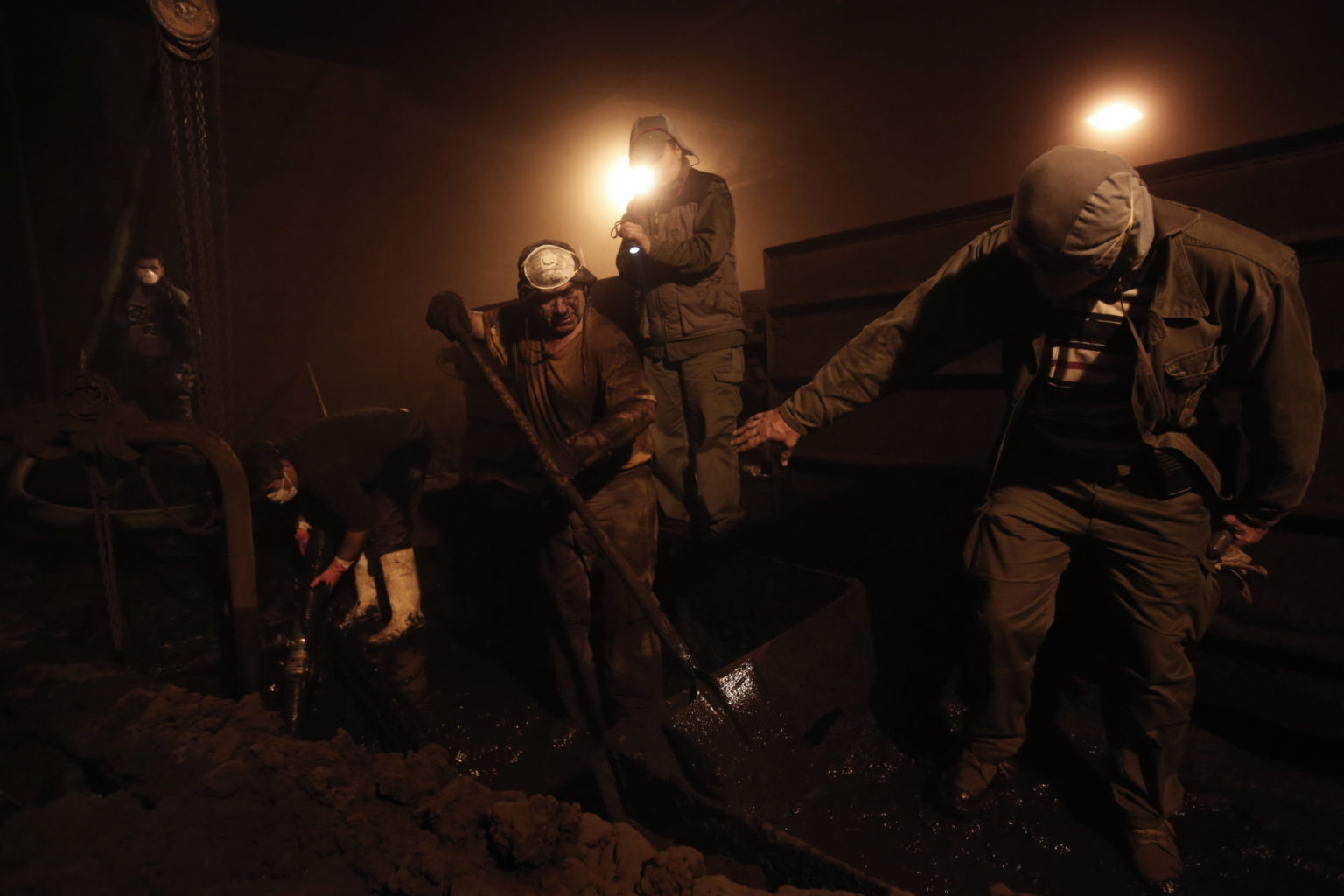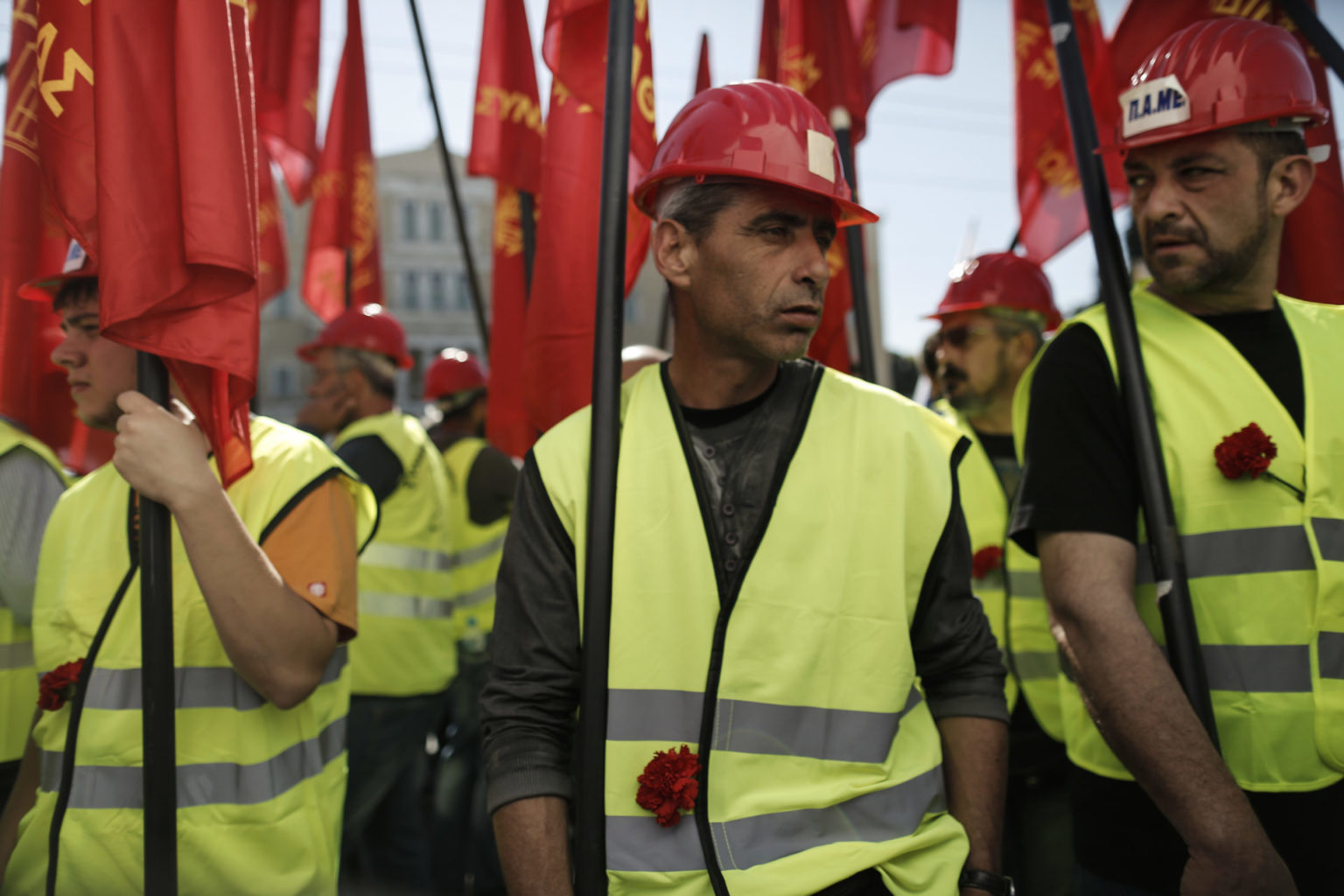He knew he would start working on 15 March. Giorgos Riggas, a seasonal employee at a large tourist unit in Attica, had planned an entire year based on this date. However, the measures against the coronavirus escalated quickly. All flights from Italy were cancelled; then the borders closed for third-country citizens and a week later Greece was under general lockdown.
Tourism and catering were immediately affected by the coronavirus. This will be recorded in the figures and first pictures of Greek sunbeds this summer. Hotel owners estimate that 38,200 jobs will be lost and the Association of Greek Tourism Enterprises characterises Q2 of 2020 as essentially lost, although our country is expected to make a faster recovery than its competitors, such as Italy and Spain. “The Easter break is lost and we don’t even know when we’ll start. In August, 500 people work at the unit I work alone. It is a massive blow. Seasonal employees, on whom the tourism industry heavily depends, are the most vulnerable” says Mr Riggas.
When the Covid-19 crisis is over, Greece will be a different country in terms of employment. The return to the so called “new normal” is expected to be at a much slower pace than that at which we got here. Moreover, the conditions for this return will be very different too. This uncertain condition is recorded in the report World Economic Outlook, The Great Lockdown of the IMF, published on 14 April. In 2020, Greece is expected to suffer a 10% recession and a rise of unemployment to 22.3%, vs 17.3% in 2019. For 2021, the Greek economy is forecast to recover by 5.1% and unemployment to drop to 19%.
The information on the monthly bulletin of the Hellenic Federation of Enterprises (SEV) published on 23 April, is revealing: businesses that suspended their operation under state orders are 14.6% of the total (206,000) and employ one in four employees in Greece (1,063,098 persons). Businesses on suspended operation had a turnover of 6.4 billion Euros in 2019 Q2, while only 1.6% thereof can carry out electronic transactions. In specific, 80-90% of businesses in accommodation, catering, education and sports activities, entertainment and leisure are in suspended operation, with more than 90% of their employees on forced leave.

The first signs of the pandemic in the Greek labour market were recorded in industries where electricity is a key component of the production cost. On 30 March, Viohalko announced the suspension of five steel plant subsidiaries in Greece for a month. As noted, the decision was taken due to the adverse conditions in the international market, which were aggravated by the pandemic. The freeze of economic activity reduced steel demand drastically. “In this phase, it is estimated that the measures will minimise the impact, in terms of both cost and liquidity for businesses, while safeguarding the supply chain of steel products”, the company stated.
Giorgos Vasileiou works at Sidenor, a Viohalko subsidiary in Thessaloniki. Most of the plant’s 250 employees are suspended, receiving 60% of their salaries. There is great concern about what will tomorrow.
At the moment, we receive 60% of our salary – 50% from the employer and 10% from the Manpower Employment Organisation (OAED) – we don’t know what will happen after 4 May when we return to work; nothing has been said yet and we cannot know.
There is definitely concern. There is concern because if the figures weren’t good in the first months of 2020, this thing will go on and there is concern about that.
Coronavirus in Greece affected the traditionally problematic sectors, even if they had shown significant signs of recovery lately. These two characteristics are a fit description of the Greek textile industry. From the onset of the pandemic crisis, given the production drop of up to 90% over the corresponding period last year, historic plants such as Varvaressos, Epilektos, Fieratex and the Nafpaktos Textile Industry, suspended their activity.
Panagiotis Koutsoupias has been working for 30 years at the Varvaressos textile industry in Naoussa. He says that the plant was initially shut down for a week and then the company asked some of its 220 employees to work, as an order had to be urgently delivered to Germany.
At the moment, the factory operates with 1/3 of its staff and the remaining 2/3 have been set on furlough under the Ergani programme until further notice. The epidemic is ongoing and no ones know when the factory will work again.
Of course we are worried. Because, the way we see it, this will not be over in a month or two. As for the measures taken by the government, these are short-term only. Now, will there be another programme after the Ergani programme is completed, will we return to work and if so how will we return? On what terms?
According to the latest updated survey of the Federation of Industries of Greece, by 31 March one in four plants in the country had suspended their operation. 90% of manufacturing businesses stated that they are affected by the pandemic. The drop in the turnover by the end of the year is estimated on average at 60%, with the most significant impact in construction materials (80%), production of mechanical equipment for industries (67%), the processing of fresh animal products (62%), drinks (58%), textile (42%) and wood industries (34%).
TELEWORKING AND PERSONAL DATA
The new conditions in labour issues do not only concern the traditional productive sectors, nor can they be interpreted by the manicheistic trade unionism of the ’80s. Teleworking, meetings in front of a screen and e-commerce are all new pixels in the big picture. And then, the measures – at least in the first phase – do not only concern the weak, but have a horizontal impact, affecting office workers, executives and managers alike.
The pandemic established teleworking as an emergency necessity. The new way of working is taking over so fast that the Personal Data Protection Authority has issued guidelines on accessing the Internet, using e-mail and messaging applications, and teleconferencing.
Especially in the case of remote meetings, we read that “platforms that support security services (encryption) should be used”. For example, teleconferencing software that does not ensure end-to-end encryption should be avoided and “the terms of use and the personal data protection terms should be studied carefully when selecting a teleconferencing solution”. Put simply: watch what you do in front of a screen and get used to it.

The purpose is not spying, but simply to ensure that our customer data remains secure while you handle it.
In the first week of the measures, employees of Teleporformance Greece in Athens received an email informing them of the equipment they would receive for working from home. The company explained that it would also be sending each employee a webcam. “The purpose is not spying, but simply to ensure that our customer data remains secure while you handle it”, read the company’s message.
Employees reacted and the company’s response was that the equipment was provided in the context of the law on teleworking, noting that it does not include image recording equipment. In the end, the webcam plan was aborted with the unofficial explanation that “the company trusts that you know how you should work”. Teleperformance is a multinational company with thousands of employees in Athens, offering telephone and technical support on behalf of other companies. In essence, it is currently the largest call centre in Greece.
The first Greek court judgement to take into account the impact of the Covid-19 pandemic in labour affairs was issued at the end of March. It was a judgement of the Magistrate Court of Paggaion in Kavala, on 30 March, which examined the request of a woman included in the provisions of the Law on Over-indebted households. The woman works as an occasional employee at a café in the summer and her main income is supplemented by a bereavement allowance for her and her minor son. Due to the pandemic, she requested an adjustment of the instalments she pays to the bank.
“The monthly instalments will amount to Euro 90.28 and will become payable in the first three days of August 2020 and not on the first month after the issue hereof, given that her income will be limited over the next three months due to the overall downturn of the economy as a result of the emergency measures to address the negative impact of Covid-19 coronavirus and the need to limit its transmission”, notes the court judgement.
WAR-LIKE CONDITIONS
Lately, the economy had started to stabilise; unemployment was on a downward trend and jobs on the increase, even with the imbalance of emphasis on flexible employment.
Giorgos Argeitis is a professor at the Department of Economic Sciences of the University of Athens and scientific director of the Labour Institute of the General Confederation of Greek Workers (INE/GSEE). He explains that the Greek labour market emerged injured from the ten-year debt crisis. “Lately, the economy had started to stabilise; unemployment was on a downward trend and jobs on the increase, even with the imbalance of emphasis on flexible employment”, said Mr Argeitis.
“Until we reached the coronavirus phase. In this case, we had an institutional intervention by the government, in an attempt to preserve jobs. It allowed businesses to suspend their operation, in order to protect public health. Furthermore, it allowed furlough as a means to include employees in the income support system, the well-known special purpose Euro 800 compensation”.
For Professor G. Argeitis, the impact of the pandemic on the labour market is very similar to the conditions of a war. He notes that it is a “severe external shock” with European and international dimensions and therefore, unpredictable development.
Giorgos Argeitis, Professor, Department of Economic Sciences, National & Kapodistrian University of Athens/Scientific Director of the Labour Institute of the General Confederation of Greek Workers
We are closely monitoring this condition in the immediate future; there are concerns that some jobs will be lost, especially in the affected sectors and I mainly refer to tourism, part of catering with periodicity features and perhaps some other sectors too. This is where unemployment will come from.
It is a transitional period, a truly strange condition; it’s what they call “war-like conditions”, a strong external shock, which does not only resonate at national level, but at European and global level too and there should be clear developments in many sectors, before we are finally able to pinpoint where the economy and the labour market are going to.
The second quarter will show the trend, the figures will be shocking, but at the same time will be fictitious to some extent, as we do not know when the economy will restart, how many will return from the current status of potential unemployment, what will be left, under what forms of employment: these matters are completely open.
41,903 LOST JOBS
The “strong external shock” referred to by the scientific director of the Labour Institute of the General Confederation of Greek Workers is shown in the figures of the “Ergani” information system of the Ministry of Labour. In the last issue, it notes that 41,903 jobs were lost in March. This is a 19-year low, much worse than the figures in the respective month in 2011 and 2012, namely the first memorandum period, when the recruitment-dismissal balance dropped to -7,500.
Data Source ERGANI
Data Source ERGANI
What happened with the coronavirus is not that there were no dismissals, but rather that there were no recruitments, especially seasonal recruitments in tourism and catering. In specific, 103,002 recruitments were recorded and at the same time 144,905 labour contract terminations, fixed term contract expiries and voluntary departures. Note that in the respective month last year, the number of recruitments was twice as high (202,157).
According to the “Ergani” data, the hardest blow was in catering, transport, entertainment and accommodation. There is more to it. The same data point out that at least one in two recruitments (52.49%) in the period January-March 2020 concerns a flexible form of employment (part-time or rotating).
Data Source ERGANI
The balance (i.e. recruitment-dismissal balance) of the month assumed its worse negative value on 20 March and has shown a trend for improvement since, reflecting the beneficial and stabilising effect of the measures taken in the labour market
“The balance (i.e. recruitment-dismissal balance) of the month assumed its worse negative value on 20 March and has shown a trend for improvement since, reflecting the beneficial and stabilising effect of the measures taken in the labour market”, stated Yiannis Vroutsis, Minister of Labour.
“These are emergency measures, necessary and temporary, with which we also try to create a protection umbrella for employees and businesses alike. These are measures that everybody knows now, as expressed in the Acts of Legislative Content, whose common factor is the cancellation of dismissals and the job preservation clause”, he added.
This is indeed so, but Y. Vroutsis only tells half the truth. The recruitment-dismissal balance was indeed stabilised after the measures were announced, but the stabilisation concerns an average of -41,000. IMEdD processed the official statistics in conjunction with the critical events regarding the management of the pandemic in March. The largest drop was recorded between 15 and 20 March. On 17 March, Prime Minister Kyriakos Mitsotakis broadcast a second official message, stating, among else, that “we are at war” and that “the enemy is invisible, but not invincible”.
The following day, the shops closed, but on the same day emergency support measures were announced (special 800-euro compensation, suspension of tax obligations, measures to strengthen flexibility for businesses, ban on redundancies, etc.). On 19 March, the Prime Minister broadcast a new official message, announcing 10 billion euros in support measures for workers and businesses. Since then, the job balance has stabilised.
The iMEdD Lab interactive map records the spread of COVID 19 in Greece and around the World
COVID-19 AND UNEMPLOYMENT IN SOUTHERN EUROPE
At the same time, a team of researchers at the University of the Aegean presents the spread of the pandemic per region in four Southern European countries (Spain, Italy, Greece, Cyprus) and its impact on employment and youth unemployment. The head of the team is Stelios Gkialis, Associate Professor of the Department of Geography and scientific director of the YouthShare program . Data is shown in online maps with an analysis of indicators that the team receives and processes daily from European and national sources.
Hospital beds per 1,000 inhabitants
Mr. Gkialis explains that coronavirus cases and deaths per region will not be proportionate to the impact on the economy and labour relations. “This is currently a working assumption, but it seems that the Italian North, for example, may have suffered more from the pandemic, but it has a different production base and can therefore recover more vigorously than the poorer Italian South and Sicily”.
The regions of Southern Europe in general, including most Greek regions, are expected to be under the greatest pressure. Not only because some places already have a poor economy or high unemployment rates, but because many are dominated by a sole productive sector – a type of “monoculture” – tourism. In regions with the weakest production structures, their most vulnerable segments will be most affected, namely women, migrants and so-called NEETs, i.e. young people aged 15-29 years, who are not in employment, education and training.
Unemployment per region
NEETs per region
“One of the most privileged Greek regions, in terms of per capita GDP, is the South Aegean. One of the richest Greek regions, it is the only one that does not follow the European norm, along with Attica. However, it is highly dependent on tourism. Thus, we can see a region that is resilient – in both Greek and international terms – find itself in a difficult position after the pandemic”, notes Mr. Gkialis.
On the contrary, Central Greece, which has the largest industrial core in the country (on the axis Oinofyta, Schimatari, Chalkida), is expected to fare better, because it has a different production base and, despite the difficulties, industry – especially the food industry – will keep operating.
————————————————————————————
The article’s interactive charts have been developed by Thanasis Tromboukis of iMEdD Lab
The interactive map on the spread of COVID 19 in Greece and around the world presented in the article has been developed by iMEdD Lab
The impact on employment and youth unemployment is shown in the article through online maps and the analysis of indicators from European and national sources, processed daily by a team of researchers at the University of the Aegean. The members of the research team of Professor Gkialis, who is running the project entitled COVID-19 and Labour in Southern EU Regions, are: Dimitris Voulgaris, Geographer, Kostas Gourzis, Planning and Development Engineer, Akis Kanelleas, GIS specialist and Dimitris Psarologos, Geographer.

